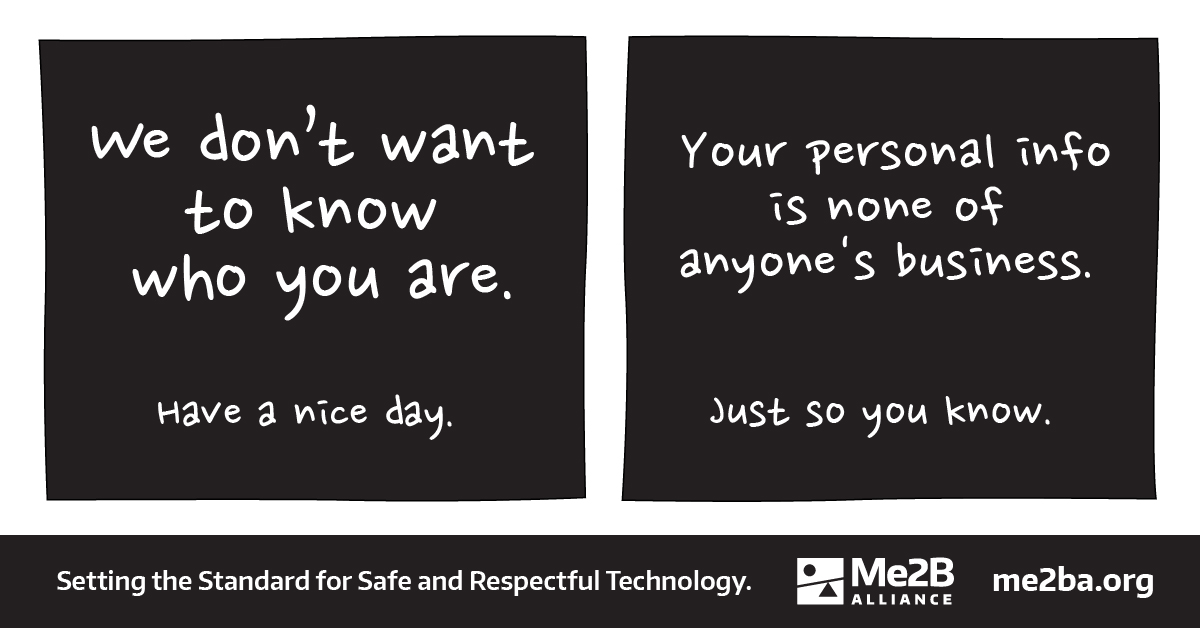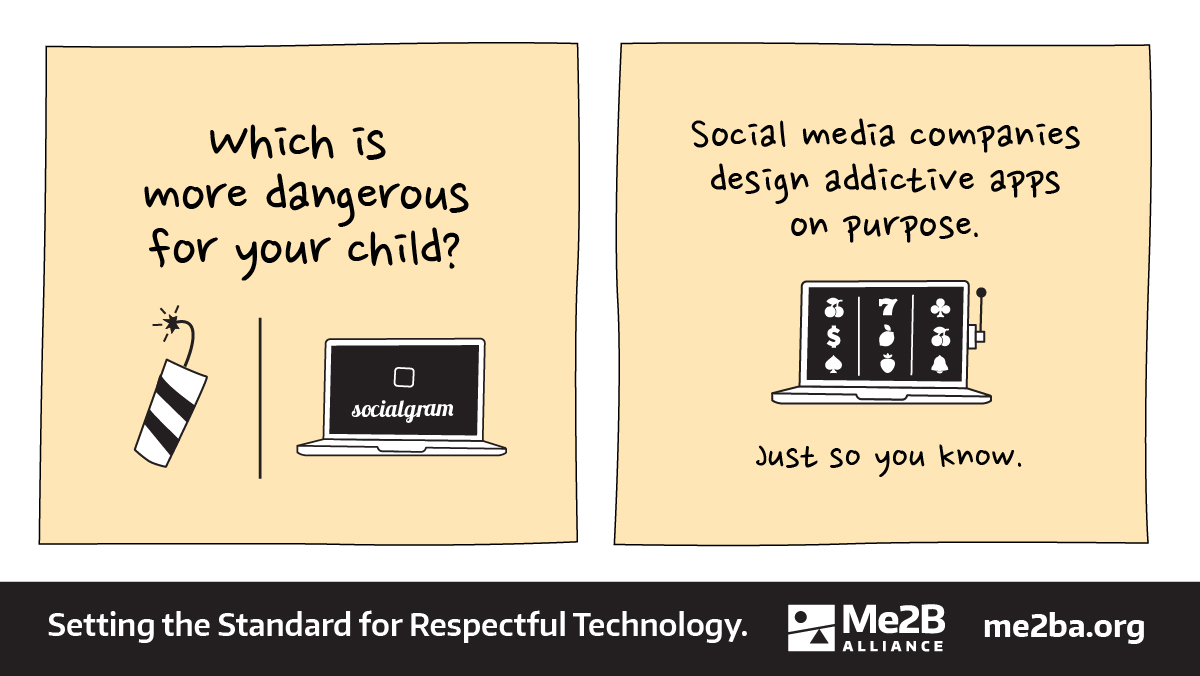1. Background In 2022, Internet Safety Labs (ISL) conducted an extensive benchmark of EdTech apps used in schools across the United States. We sampled 13 schools in each state and the District of Colombia and identified 1,722 unique apps which were in use In K12...
Research

MOST RECENT POST
Dangling Domain From SDK Installed in 150+ Apple Apps Putting Kids, Families and Crypto Traders at Risk
Oct 7, 2021 | Research
Over the past month, the Me2B Alliance product testing team has been investigating something we refer to as “dangling domains” and the risks they pose to people, especially children and families.
A “dangling domain” refers to any URL/domain previously owned by a legitimate organization or business, but which has been either abandoned due to the business shutting down, or due to a mistake where the organization or business forgets to renew their own domain.
Flash Guide #10: Data Flow & the Invisible Parallel Dataverse
Sep 1, 2021 | Research
The reality of online data flows is nothing like what we expect. Our personal data flows do not start light and increase with time and trust. Instead, a firehose of personal information is released – and shared with a host of unseen third parties – as soon as we open an app or website. Me2BA’s Respectful Tech Specification V.1 is largely focused on testing for these invisible parallel dataverse data flows.
Flash Guide #9: The 10 Attributes of Respectful Me2B Commitments
Sep 1, 2021 | Research
The Me2B Respectful Tech Specification measures technology behavior against 10 attributes that respectful Me2B Commitments should possess. These attributes represent how technology should treat us and our data at every step along the Me2B Relationship Lifecycle.
Flash Guide #8: Digital Me2B Commitments & Deals
Sep 1, 2021 | Research
Over the course of the digital Me2B Lifecycle, individual “Me-s” (Data Subjects) will have the choice of deepening the relationship through a series of Me2B Commitments with the online vendor, “B” (Data Controller). This guide provides examples of common Commitments and Deals, and shows how they map to the stages of a Me2B Lifecycle. It also reflects social norms for being anonymous, recognized, or known at each stage.
Flash Guide #7: The Me2B Lifecycle: Overlaying Social Norms on the Digital World
Sep 1, 2021 | Research
The key to creating a safety standard to measure the behavior of technology is the ability to take several contexts into consideration, including the current status of the Me2B relationship. The Me2B Lifecycle model provides a framework and vocabulary to articulate and account for the dynamic “relationship context” over time when evaluating the behavior of technology.
Flash Guide #6: Online Me2B Relationships
Sep 1, 2021 | Research
Me2B Relationships in the digital world have even more layers than those in the physical world. In addition, our relationship with connected technology includes a set of “hidden affiliates” (third party integrations) that most of us are not aware of. This guide describes how these relationships – conscious or not – emerge as we interact with digital technologies.
Flash Guide #5: Online Me2B Deals: Currencies in the Digital World and the Price of “Free”
Sep 1, 2021 | Research
The Me2B Deals or transactions that occur online typically involve three types of “currency”: money, attention or data. The individual consumer (Me) exchanges one of these currencies for goods or services online. Data monetization has emerged as the primary method of income generation to subsidize so-called “free” digital services, with little to no regulation or oversight. What sets online data monetization apart from the other two currencies is that often, customers have no idea what they are paying with – or that they are paying at all.
Flash Guide #4: Introduction to Me2B Relationships and Me2B Deals
Jul 28, 2021 | Research
There currently isn’t an adequate vocabulary to describe people’s experiences in the digital world, which impedes understanding and conversations around what’s actually happening, and what harms are lurking. The Me2B Alliance has developed a set of terms to help bridge this gap. Central to the vocabulary is the concept of Me2B Relationships, which are the relationships people (Me’s) have with purveyors of products or services (B’s), and the concept of Me2B Deals, which are exchanges of value between a person (Me’s) and a business (“B”).
Flash Guide #3: The Me2B Rules of Engagement: Our Ethical Foundation
Jul 28, 2021 | Research
The Me2B Rules of Engagement translate the attributes of healthy interpersonal relationships into the types of respectful and ethical behavior that technology can and should embody. Our eight Rules of Engagement are the product of years of discussion and analysis. They reflect how people like to be treated and serve as the core principles underlying the Me2B Respectful Tech Specification.
Flash Guide #2: What is the Me2B Respectful Tech Specification?
Jul 21, 2021 | Research
The Me2B Respectful Tech Specification is a sorely needed ethical and safety standard for the internet. It consists of a series of tests that objectively measure the behavior of a connected product or service. The Specification helps people (“Me-s”) understand how technology is treating them, and helps businesses (“B-s”) build technology that is safe and respectful for the people that use it.
Walking the Talk of Respectful Marketing
Jul 12, 2021 | Research

The Me2B Alliance strives to do its part in shaping an effective, privacy-safe paradigm that works for both consumers (Me-s) and businesses (B-s). Every day we are figuring out pieces of this in our own marketing efforts. We want to share our learnings to help others succeed in the new world of respectful marketing.
Shedding Light on Dark Patterns
Jun 10, 2021 | Research

Me2B Alliance’s Head of Validation Research, Noreen Whysel, recently presented “Shedding Light on Dark Patterns: A Case Study in Digital Harms,” at the 2021 Information Architecture Conference.

